Think moving houses is hard? Try moving to a whole different country! Whichever country you live in, have lived in, or will live in, they all have their own quirks, challenges, and wonderful parts, and South Korea is no exception.
Before beginning your life in Korea, it’s great to be prepared for what’s to come – and not just with the school or workplace that you’re going for. Like everywhere else, living in Korea will have its ups and downs, and the culture may be quite different for a foreigner than it would be for a local. Nonetheless, there are a lot of foreigners who opt to go to Korea for a lot of different reasons.
We’ll give you a brief overview of what life in Korea for foreigners is like, so you can come prepared!
Cost of Living
Before moving to another place, learning about the cost of living should be on top of your list. Here are some factors that you should consider:
Housing
Although talking about money is a rather shallow way to approach life in any country, it is important to be prepared and have adequate finances at all times. In the case of Korea, like most countries, the biggest cost of living for anyone is usually accommodation.
As was already detailed in our post on getting an apartment in Korea, while the monthly rent may not be bigger than anything you’re already accustomed to in your home country, the key money deposit can be a killer.
If you’re looking to rent an apartment all to yourself once you arrive in Korea, you may want to have an extra few thousand dollars in your bank ready to pay for that key deposit. Even more in some cases since some of the best places can easily get into the 10s of thousands of dollars in deposit.
However, if you come to Korea as a teacher specifically, this is usually not something you need to worry about – typically many schools will pay even your rent, or at least give you an allowance for it.
Transportation
Overall, transportation in Korea is not expensive, nor is it difficult to navigate once you get used to it. A one-way commuting ticket costs around 1,250 won, with the fee getting higher depending on how far of a distance you’re traveling, though usually not exceeding 1,550 won within Seoul.
The ticket also allows you to transfer from bus to subway, or the other way around, for free, as long as you do so within 30 minutes of exiting the previous public transportation.
Besides public transportation, you can also get around by taxi fairly easily. The cost of taxis in Seoul is well below the rates of other big cities in the world. It’s also your only option at night time when public transit stops running. And here is where it gets tricky. The starting fee is higher, and the meter will also run up quicker.
In addition, the taxi drivers will be pickier about actually agreeing to drive to your destination – sometimes this is because they only operate within a specific area, other times they’re just being greedy.
Know that although taxi drivers discriminating against foreign customers is sometimes an issue in Korea, it is absolutely illegal in Korea to turn down servicing a taxi client, and you are encouraged to report the taxi driver who refused to drive you or otherwise extorted more money out from you than would have been fair for that distance.
Summing up
In general, whether South Korea is expensive for you or not depends on where you’re from originally. As far as food goes, because eating out is such a big part of socialization among Koreans, restaurant food is quite affordable. You can easily get delicious local dishes for just a few dollars!
International food is more expensive, but the more affordable ones are often under 15 dollars, and anything beyond that is considered expensive and luxurious even among Koreans.
Grocery shopping, however, can be quite pricey. So, as soon as you’ve arrived in Korea, you might want to browse around your neighborhood’s restaurants and supermarkets to map out good spots for your weekly eating.
Korea is also great for shopping, especially for cosmetics and skincare. Both are top-notch in quality and affordability. For clothing, it again depends on your home country, and also the brands you choose. Korea has many affordable clothing shops on almost every street, and they’re even cheaper online, but the quality of the more affordable clothing isn’t always the greatest.
They also have many international brand stores if you’re okay with paying more for quality.
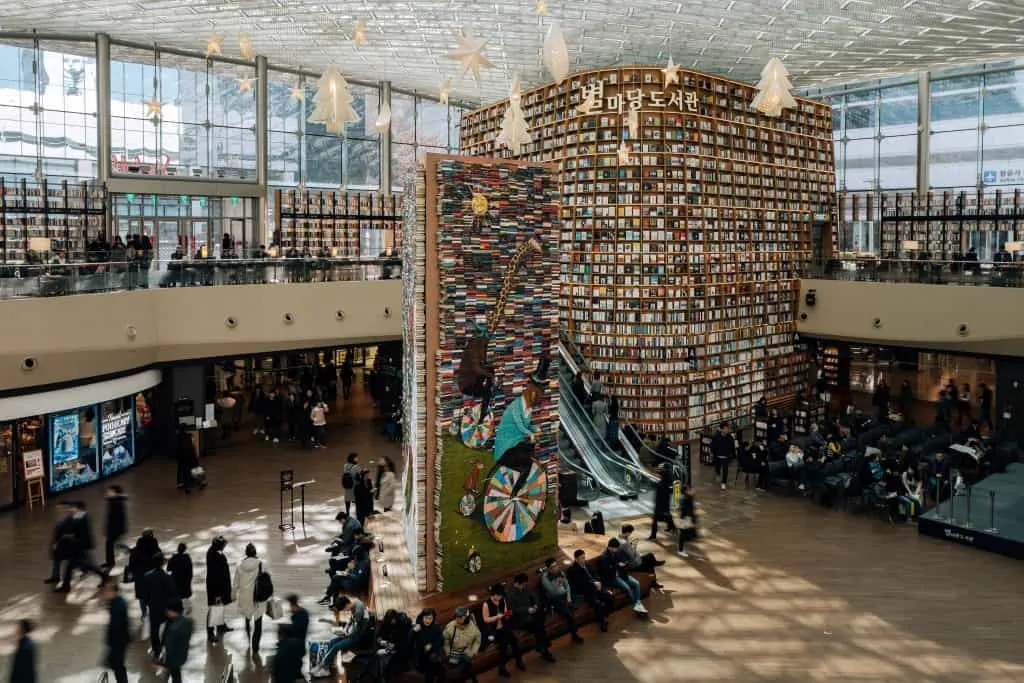
Additionally, to live a comfortable life in Korea, learning to express costs and prices of housing, transportation, products, and services in Korea will help you a lot. If you want to learn about Korean numbers, you can check out our full guide here.
Life in Korea as a foreigner
If you live in Seoul or Busan, you’re especially lucky, as there are so many things to do outside alone or with friends, from clubbing to a picnic by the river, on top of which there’s always someplace to go to at all hours. This is why Korea is especially ideal for young active adults to live in.
What you should understand, and may already know, is that Korea is a high-pressure society, with intense competition in all areas of life. That leads Koreans to work insanely long hours, being concerned over how the world around them perceives them, constantly learning new skills or improving upon already existing ones, as well as feeling pressured to find the perfect partner to marry.
As a foreigner, you’ll be happy to hear that you will not have to share these expectations to the same degree as locals. You will usually be able to go home on time when you are finished with work, and you can choose your lifestyle more freely without additional pressures.
But that does come with a tradeoff – in Korea, you will always be seen as a foreigner. This will be true no matter how good your Korean skill is, how long you’ve lived here, where you work or went to school, or what your visa or marital status is. It’s overall a homogenous society and they aren’t set up well to have foreigners assimilate.
You can do your part to get the best of both worlds by spending a bit of time learning some of the local language and customs. Even learning a few common Korean words will make your life easier.
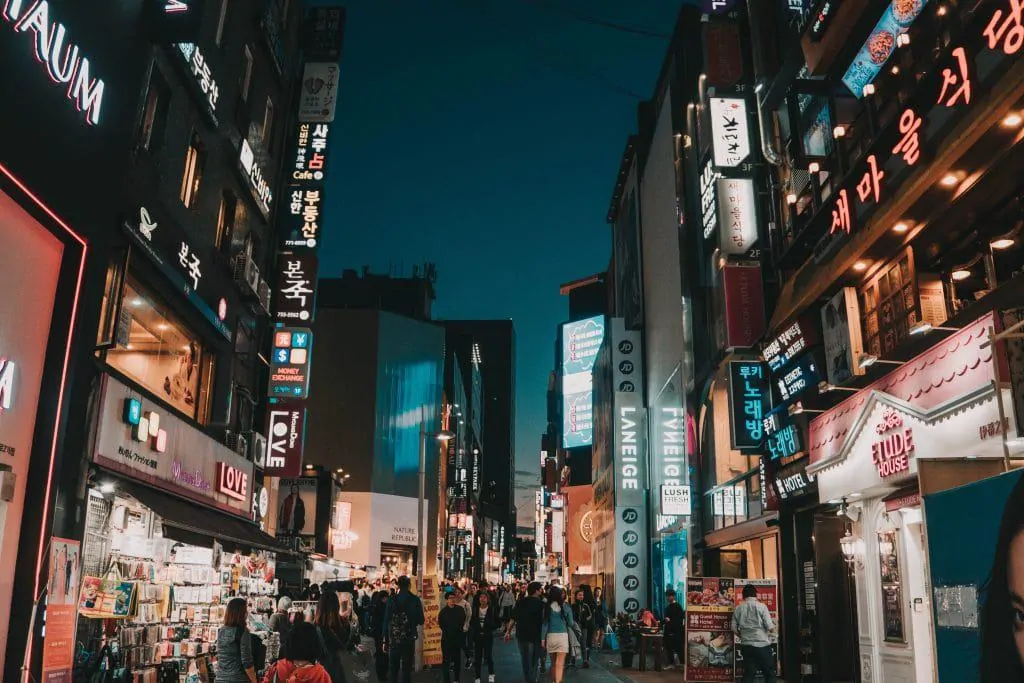
Other things to consider
Here are a few more things to take into consideration before your upcoming life journey in Korea.
- Recycling is incredibly important in Korea, and you’ll get fined to hell and back if you make the mistake of trying to pass off recyclable items as general trash. Each apartment building will have its own area for recycling.
- Internet Explorer is, unfortunately, the browser to use for almost all of your banking, school, and immigration purposes since websites are optimized for it. You’ll have varying degrees of success with other browsers.
- In order to get service at a restaurant, there is either a button to press or you’re expected to yell out for the wait staff. Also, tipping isn’t expected or required.
- There is also no service charge in (Korean) restaurants, and any sales tax is included in the menu items cost. The price on the menu and the price tag on the item is exactly the price you’ll pay.
- It is mandatory for you to have health insurance if you are employed in Korea, registered as a student in one of their schools, or otherwise some kind of resident.
Wrap Up
I hope you learned a lot and considered these factors before making that big step!
And if you’d like to know more about Korea, here are some interesting facts that you should know.

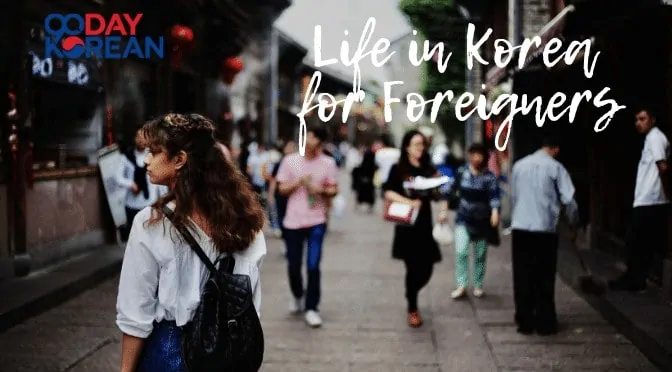

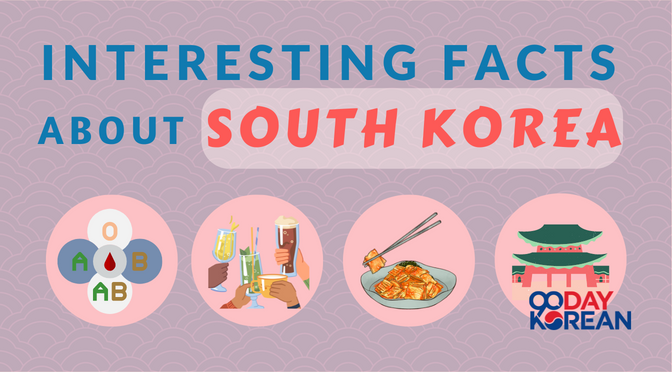
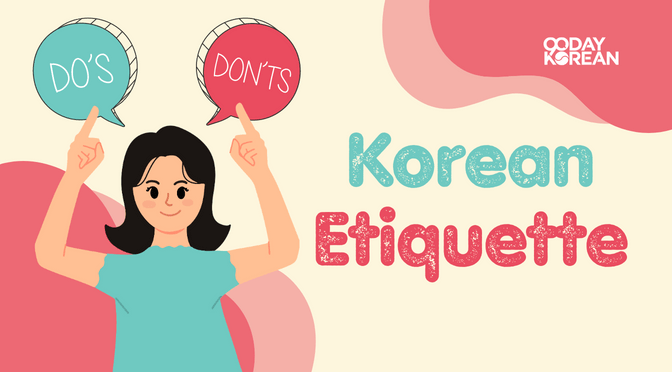

Hi there
I’m currently completing Masters in Teaching and would like to move to Korea after to gradating. I was wondering if you thought it may be hard to organise everything before leaving. Finding a job, an apartment, organising a bank etc.? Would I be more sought after for having such a degree?
Hi, Jared! You can apply for a job and get the visa first in your country after getting a degree! Finding an apartment and others can be done in Korea. ^^
I am still 15 years old but i really want to go there and know them more .I also wanted to live there what do you recommend me to do to go there
Hi, Yanet! Seoul would be the place with the most opportunities for foreigners in Korea! Of course, you can travel around the country to find out your favorite place to stay! ^^
Hi Yanet i have 14y.o. And i want to go there too. Especially because of Bts and u know. I want get to know culture and that stuff. So i search for ideas like go there, how to live there and how about visa etc.. So it will be nice get to know you and maybe we can be friends…
Looks good, I wanna visit Seoul or Busan soon.
Great, hope you can visit Korea soon! ^^
Hello,
Depending on the current circumstances and restrictions I’m (hopefully) going to Seoul in September.
I’m from the UK and I’m wondering what the Korean people’s attitude to foreigners is giving the current circumstances?
We booked in a year ago and are so excited to finally go, but would hate to go and make people feel uncomfortable with our presence!
Thank you
Don’t worry, Jane! You will have to be isolated for 14 days after arriving in Korea. After that, you can travel around Korea and Koreans don’t care about foreigners regarding COVID-19. ^^
Living in Seoul korea for work and heard something about Koreans wanting taking pictures with foreigners is this true? But then i also hear Koreans are the type to mind their own business and leave forigners alone, and don’t really talk to strangers, a big reason I am happy to go there hearing it’s a quiet country where you can be alone if you choose, I would be quite uncomfortable if Koreans just came up to me like that..or is this not really a thing in Seoul because Seoul sees many people?
Don’t worry, Andy! Koreans don’t bother foreigners for a picture and no one really cares about a stranger in Seoul unless you ask for help. You will be able to have the life you want. ^^